A prospective new state, to be known as Al-Dawla Al-Islamiyya fi Al-Iraq wa Al-Asham (“The Islamic State in Iraq and the Levant”), was announced on June 29, 2014. Exactly one year later, Mr. David Cameron, prime minister of the United Kingdom, chastised the BBC for referring to the new entity as a state. He told the BBC to refer to them as an organization or a terrorist regime, but not a state. The BBC did not entirely agree.
Was Mr. Cameron right? The answer is threefold: There is ISIL the organization; ISIL the state; and then groups that sympathize with ISIL, or even pledge allegiance to ISIL, but who are outside the Iraq/Syria territorial limits. ISIL itself distinguishes between the organization in the homeland and the organization outside the current state territory.
ISIL: THE ORGANIZATION
The founding father of The Organization for an Islamic State (Tantheem al-Dawla Al-Islamiyya) is generally acknowledged to be Abu Bakr Al-Baghdadi, who was born in Samarra, Iraq, in 1971. His real name is Ibrahim Awad Ibrahim Al-Badri, and he is said to hold a doctorate in Islamic Studies. He was among those who were detained by U.S. forces in Iraq in 2008.
The roots of ISIL the organization are found in the post-2003 al Qaeda in Iraq. A group of more action-oriented members of al Qaeda split off to form the organization. Al-Baghdadi became their leader in May of 2010 after other more senior members were killed on the Syrian border. Al-Baghdadi’s organization is a disciplined one run mostly by former Iraqi military and intelligence officers.
The roots of the organization were in al Qaeda, but this is not al Qaeda. Unlike al Qaeda, ISIL has a hierarchal organization; al Qaeda had no organizational structure, no communication department and no auditing arm. ISIL’s leaders have not made many theological or major political pronouncements; ISIL has no guiding theological guru. There are several clerics, mostly Saudis, who have but a limited knowledge of Islam, who seem to give the organization an overall Salafist/Wahhabi orientation.
The organization’s leaders and followers seem to know little of Islamic teachings or history, although they claim that they and they alone are following true Islam. They do not respect others’ views of Islam, and are quick to declare fellow Muslims as kafirs whose slaughter is justified. They interpret Islam’s teaching as best fits their objectives, so the organization’s interpretation of Islam is not only extremist, but at times outright false. Take, for example, their fatwa (religious opinion) at the start of the month of fasting (Ramadan) that told all who fast that God would not accept their fast unless they believed in and supported the organization. Their leaders, like many of their extremist religious cohorts, seem to compete in restricting the rights of women in ways that have nothing or little to do with traditional Islam (such as forbidding the use of nail polish or high heels).
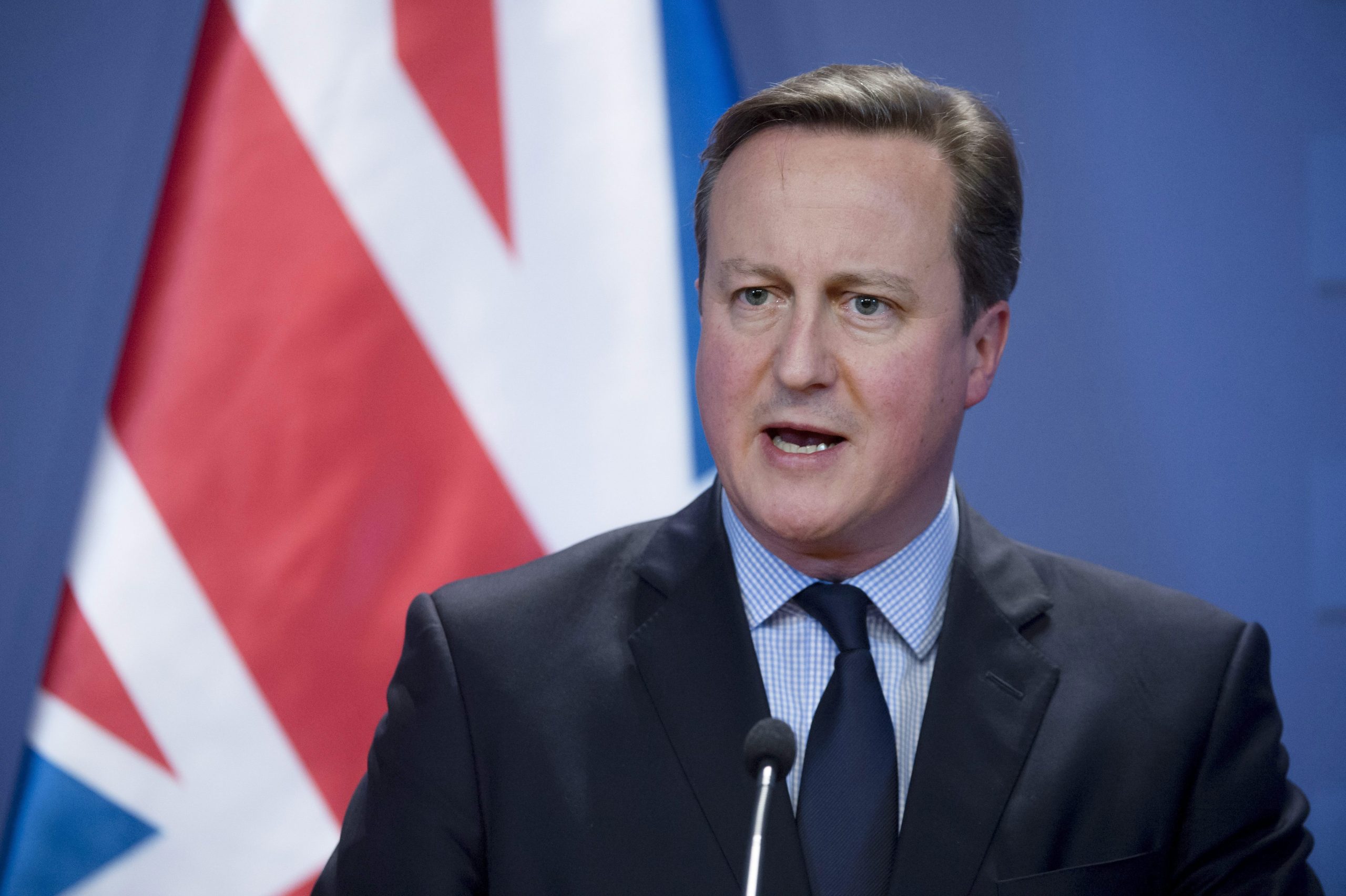
British Prime Minister Cameron said the fight against ISIL is “the fight of our generation.” If ISIL is truly that much of a threat, would the prime minister then authorize the use of British troops to fight ISIL? The answer is “no.” (AP Photo)
The organization advocates a return to the early years of the Islamic Caliphate, more specifically the first three Caliphs. There is not much in their words or actions that comes close to the brilliance, tolerance, or wisdom of the first caliphs, of course. The organization deliberately excludes the fourth Caliph, Ali, who was the Prophet Muhammad’s own cousin; an insult to the Shiites, who consider Ali their ultimate Imam. One of the organization’s main reasons for existing is to fight against Shiite states, militias and anyone who is a Shiite (whom they consider as heretics).
The organization is not as interested in spreading Islamic dogma, or in providing as many social services. It caters to the young who want to see combat. It wants to control land and resources. In short, it wants a state.
ISIL: THE ISLAMIC STATE
To the British prime minister’s dismay, this “state” now controls a territory the size of England. It has a population larger than Denmark or Norway. It meets the criteria identified by U.S. law as the necessary requirements for statehood, except one, and that is recognition by other states; thus far, no country has recognized the Islamic State or its government.
What ISIL, the organization, has built is described by some as a bureaucratic state. It has its own police force modeled after the Saudi religious police, enforcing a type of Shari’ah (canon) law applied by a not-too-well defined court system. No citizen under ISIL’s rule can predict what may be considered a serious violation. Judges whose qualifications are not made public man the courts. They can sentence anyone to imprisonment, fines, or execution. Recently, a court in Fallujah declared that smoking a hookah was haram (religiously forbidden). The state ordered the smoker beheaded.
The Islamic State has taken over public education in both Iraqi and Syrian areas under its control, and turned the curriculum into a Salafist curriculum, not too different from the one taught in Saudi schools.
The Islamic State operates under a budget that compares well with many small countries. Its annual operating budget is about $2 billion; the first year is said to have ended at a surplus of nearly $250 million. Its major sources of revenue are oil and other energy resources sold to Syrians and Iraqis outside the state or to traders in Turkey; roadblock fees; kidnapping ransoms; robberies; and taxes imposed on whatever the state feels like taxing. But unlike other “Jihadist” groups in the region, ISIL does not rely primarily on foreign donations, although it keeps viable connections with some wealthy supporters in the Gulf region, and thus U.S. financial sanctions on ISIL are not likely to be very effective.
What attracts attention in the West, especially among the media, is how savvy the Islamic State seems to be when dealing with its Western colleagues. ISIL has a sophisticated media department headed by Abu Muhammad al-Adnani al-Shami, a Syrian who was educated in Massachusetts. The other quality that distinguishes ISIL is its propensity for extreme violence.
In al-Raqqa, northern Syria, the local inhabitants have stopped referring to the central square as “Paradise Square” and unofficially renamed it “Hell Square” because of the bloodshed that has taken place there in the year since ISIL took over the city. The Islamic State has turned to executions, beheadings, cutting off of hands and feet, and even crucifying citizens. The state will execute anyone accused of cooperating with the Syrian regime, opposing ISIL, robbery, spying, homosexuality, or sexual deviancy. Excess violence is a deliberate act of intimidation. Acts of barbaric proportions are performed publicly and publicized.
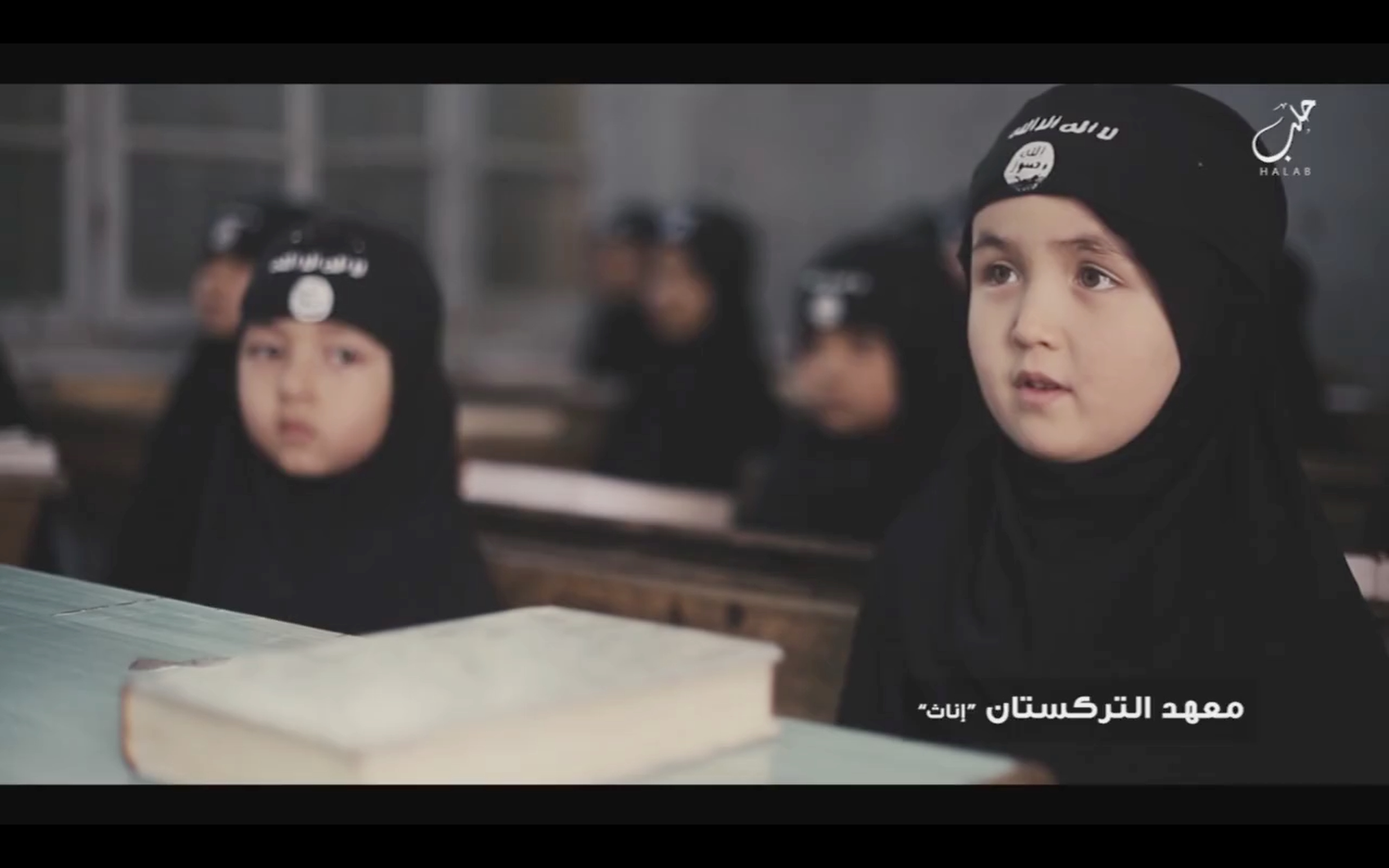
The Islamic State has taken over public education in both Iraqi and Syrian areas under its control, and turned the curriculum into a Salafist curriculum, not too different from the one taught in Saudi schools. (via AP Images)
Yet, ISIL still asks Muslims to consider this brutality as temporary or justified retribution against agents of regimes who show Muslims no pity. ISIL’s representatives do not tire of pointing out the brutality of the Syrian regime, the Iraqi Government, Shiite militias or the random U.S. air attacks.
The Islamic State has its military forces, just like other more established states. It is difficult to assign a precise number to the ISIL fighting force, and the Obama administration’s numbers do not help much. In February 2015 the Director of National Intelligence James Clapper said that ISIL had between 20,000 and 22,000 fighters. In June 2015 the U.S. Deputy Secretary of State Antony Blinken said we had killed more than 10,000 of them this past year, but in May 2015 one of his own officials estimated that ISIL had attracted over 22,000 foreign fighters from more than a 100 countries.
Non-government sources estimate ISIL forces to be about 100,000; nearly 70,000 are Iraqi and Syrian, with the remainder being “foreigners” (that is, not Iraqi or Syrian). One Washington think tank believes that these foreigners include Libyans, Tunisians, Saudis, Jordanians and Egyptians. The same think tank estimates that there are 2,000 Turks, plus a contingent of French, Belgians and Englishmen. Another source estimates the presence of about 2,000 Russian citizens. It is estimated that ISIL has an array of weapons from many countries, mostly captured, stolen or bought from Syrian and Iraqi troops. Some U.S. weapons supplied to Iraqi forces or anti-regime militias in Syria have found their way into ISIL hands.
ISIL fighters have engaged in much killing over the last twelve months. It is estimated that they have executed more than 3,000 civilians, a third of whom are Sunni Arabs (many from Syrian tribes opposed to the organization). In addition, they have killed over 4,000 combatants, including soldiers fighting for the Syrian regime, Kurdish militias and Syrian opposition groups. On their part, ISIL forces lost between 8,000 and 10,000 fighters.
The speed and relative efficiency that brought about this state are in sharp contrast to ISIL’s ideology. What ISIL advocates may be a return to the sixth or seventh century, but its means (administrative, military, and perhaps in its brutality) are twenty-first century.
ISIL AFFILIATES
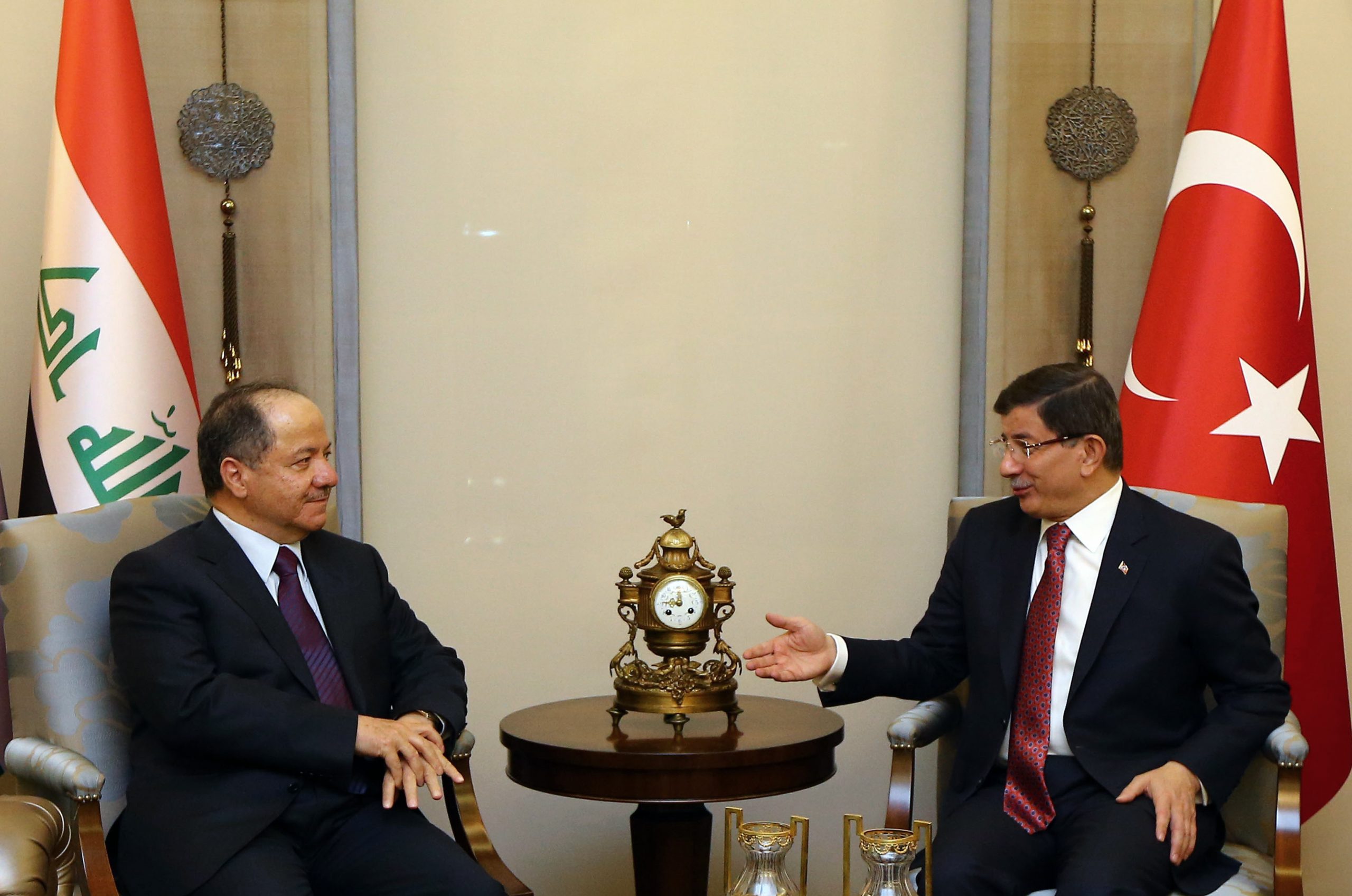
Turkish Prime Minister Ahmet Davutoglu, right, and President of Iraq’a northern Kurdish region, Massoud Barzani, speak during a meeting in Ankara, Turkey. Davutoglu defended his country’s deployment of additional forces to Iraq last week, saying it was an “act of solidarity” with Iraq’s fight against the Islamic State group. (AP Photo)
It would be a mistake to view ISIL as a worldwide organization of the multi-national corporate model. Of course there are extremist groups in other Arab and Muslim countries, some of which share ideals with ISIL. There may be overlap of interest and even cooperation, but this does not mean that the State or the organization in Syria/Iraq actually controls and directs these groups.
Presence of such mostly isolated individuals or groups should not lead us to over-estimate their strength or ISIL’s reach, despite ISIL’s own credit-taking for events initiated by others. More often than not, local tyrannical regimes ascribe acts of resistance against them not as genuine local resentment of the regime, but as terrorist aggression by ISIL. Terrorist acts inspired by ISIL should be viewed differently than terrorist actions carried out by ISIL
WHAT DOES ISIL WANT?
The Organization has a clear objective for the near future expressed in its latest motto: “Survive and Expand.” In the past year, ISIL won and lost territory, retreated in northern Iraq when facing the Kurds, but expanded in Al-Anbar, defeating Iraqi government forces. Its expansion in northern and eastern Syria is a reflection of continued weakening of the Syrian regime. Overall, ISIL controls more land and more people than it did a year ago.
Iraqi forces have been blamed for leaving the battlefield without showing much enthusiasm for a fight. General Martin Dempsey noted that ISIL did not force Iraqi troops to leave Ramadi; the Iraqis abandoned it. The Sunni population in al-Anbar does not trust the Baghdad government, which is a corrupt, sectarian-controlled, and brutal regime. The question is not one of training, or type of weaponry, but the political and security systems that were put in place in Iraq.
The situation in Syria is no better. The West and several regional powers have been working for nearly four years to oust the Al-Assad regime, but clearly have no alternative to this regime. The regime now controls only about 50 percent of Syrian territory. If it is toppled, ISIL is likely to be the winner.
ISIL IS NOT A CALIPHATE
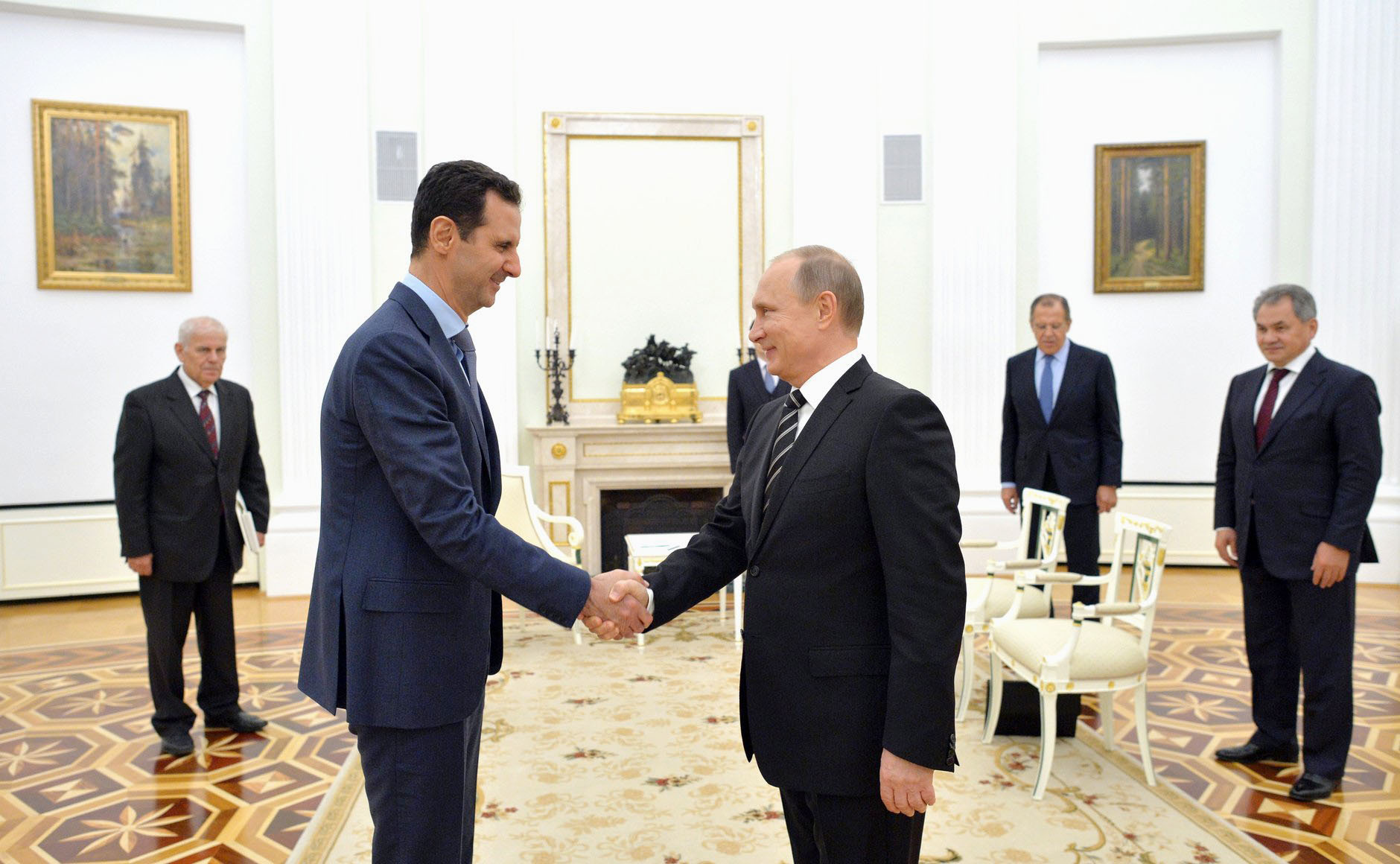
Pro-Turkish militias are operating in Syria now, further complicating that country’s role and perhaps bringing Turkish policy in conflict with U.S. and Russian positions. (AP Photo)
ISIL is an extremist Sunni militant organization that cannot possibly claim the mantle of caliphate of all Muslims. In its efforts to assume control over territory and resources, it relies on extreme violence operating under a thin veneer of radical Islam. Its victims have been overwhelmingly Muslim Arabs. It has no global intent to spread Islamic dogma or Muslim dominance, despite its bogus claim to a Muslim caliphate.
U.S. RESPONSE
ISIL is not a threat to U.S. security, U.S. regional interests or even U.S. allies. ISIL’s victims have not been primarily Americans or Israelis. Exaggeration of its possible threat to the United States is based solely on its barbarism and its successes in the use of social media.
The United States and its closest friends seem to be at a loss to come up with a working strategy. Again to quote Prime Minister Cameron, the fight against ISIL is “the fight of our generation.” If ISIL is truly that much of a threat, would the prime minister then authorize the use of British troops to fight ISIL? The answer is “no.” Would he temporarily suspend the efforts to overthrow the Al-Assad regime and seek to work jointly with Al-Assad? The answer there is also “no.”
What, then, would the prime minister do to win the “fight of our generation?” Clearly, he would train and arm more anti-ISIL militias, and he would bomb Syrian infrastructure. The U.S.-led effort has thus far followed this two-pronged approach: An air war and support for opposition groups in Syria. To date, it could be said that there has been an over-reliance on air power, since the U.S. and its allies have conducted over 4,000 air attacks in the past year. There were 165 such raids on Ramadi alone, plus another 420 air raids in the Ramadi-Fallujah region before Ramadi fell.
Over the last four years the U.S. and its partners have spent effort and funds to train and arm a variety of groups. There is a staggering number of such groups, each promising to be opposed to the Syrian regime and also to ISIL. They frequently change their names and leadership. Most are corrupt and are mainly looking for access to outside (U.S. and other) funding.
Searching for an ideal Syrian partner or partners, such as the so-called moderate Syrians, is fanciful. Saudi Arabia and Qatar stand out as financiers of extremist opposition groups, such as Al-Nusra. U.S.-supported groups are weaker than Al-Nusra, as Robert Ford, our ambassador to Syria, has admitted publicly. Ambassador Ford recognized that moderate Syrian opposition groups still have an alliance with Al-Nusra, which is itself affiliated with al Qaeda.
Both parts of the U.S. effort have cost America at least $3 billion thus far. We are spending about $9.7 million a day on ISIL. What are we getting in return?
If the Obama administration continues its refusal to cooperate with the Syrian regime, there remains only one alternative, and that is to seek new allies. The “new” enlistees would be Sunni tribes plus religious and ethic minorities in Syria; which means, in short, that the Druze and Christians would have to join the fight. (Israel claims to be making protection of the Druze minority a high priority.) Going this route means that Jordan would have to be dragged into it, too, since the U.S. and Israel have little access to Sunni tribes.
The U.S. Congress has allocated funds to enable Jordan to arm and train Sunni tribes in western Iraq and eastern Syria. The consequences of Jordanian involvement in this conflict are hard to predict, but are not likely to bolster Jordanian stability, nor better her relations with neighboring Iraq and Syria. Inserting two small and vulnerable minorities into war against a brutal segment of the area’s majority group cannot bode well for Druze or Christians.
The conflict in Iraq and Syria is assuming an ethnic turn, as the Kurds take more “Arab” lands from the two countries. Involving Turkish troops is a serious possibility that is likely to carry unforeseen consequences, as does the prospect of creating “no-fly zones” in Syrian territory. Pro-Turkish militias are operating in Syria now, further complicating that country’s role and perhaps bringing Turkish policy in conflict with U.S. and Russian positions.
IS THERE AN ALTERNATIVE U.S. POLICY?
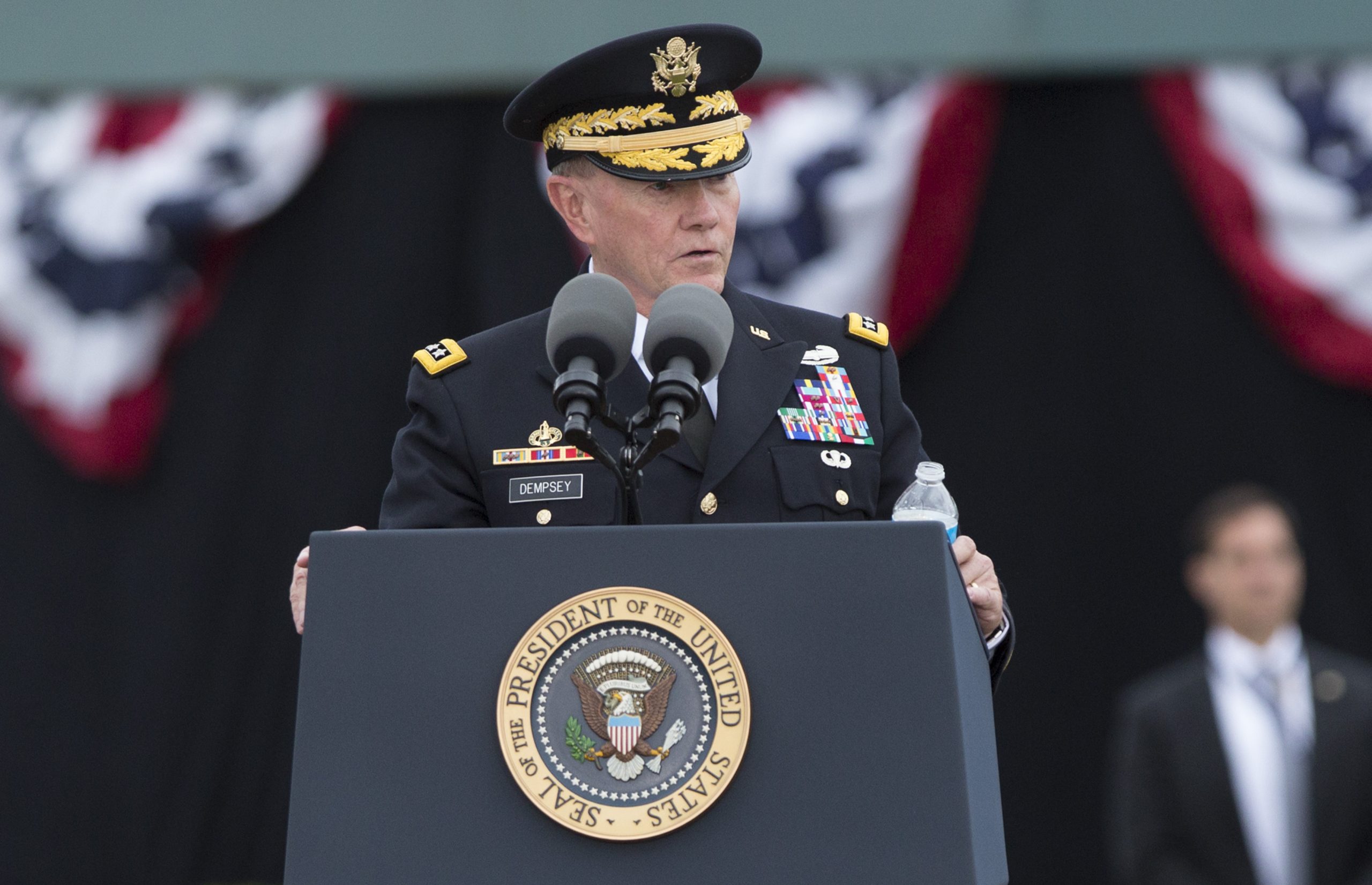
General Martin Dempsey noted that ISIL did not force Iraqi troops to leave Ramadi; the Iraqis abandoned it. The Sunni population in al-Anbar does not trust the Baghdad government, which is a corrupt, sectarian-controlled, and brutal regime. The question is not one of training, or type of weaponry, but the political and security systems that were put in place in Iraq. (AP Photo)
It would be tempting to initiate unrestrained and massive air attacks on Syria and Iraq, killing hundreds of thousands of people (ISIL supporters and others), but that would not solve the problem. It might be easy to advocate re-introducing 100,000 U.S. ground troops or more, but that was partly what caused the problem that led to the failure of the Iraqi state. Our leaders can do better, but they really do need to take the high road. Consider the following policy steps:
1. Reduce ISIL’s Access to Fighters and Weapons.
The U.S. can take steps, in concert with allies, to stop the flow of foreign fighters going into Syria. This is not that difficult, as most enter through Turkey, Lebanon and Jordan, and most hope to return to their native countries. The U.S. has influence on the governments of the countries that provide the most foreign volunteers: Tunisia, Saudi Arabia, Egypt and Jordan. The U.S. can also help slow the flow of arms going into Syria.
2. Pursue More Effective Military Policy.
Military action is still needed to defeat ISIL, but no U.S. or NATO troops should be involved. Among other things, they would not be welcome in the region. Only regional regimes can eventually defeat ISIL. These powers are not Saudi Arabia, the Gulf States or Israel. Realistically, only five countries can and should take the fight to ISIL. These are Syria, Iran, Jordan, Iraq, and Turkey. Three are Shiite-governed, and a political understanding with Iran has to be considered. The U.S. may have to coordinate intelligence and operational plans with both Iran and Syria. The Syrian Arab Army is the armed force most likely to beat ISIL — it can do that with U.S. and Russian help — as well as being the only force that has the legitimacy and capability to hold and govern territory given up by ISIL.
3. Embark Upon a Saner Syria Policy
A wise policy would support the integrity of Syria, even under a despotic regime, and then work to reform and not necessarily uproot the regime. Success will require that the resources of the Syrian government be upgraded as those of ISIL are degraded. Meanwhile, a change in public diplomacy is also called for. Our leaders and media outlets should stop describing U.S actions as a war. ISIL’s followers do not deserve the honor of being combatants by status. They are criminals. If military measures are to be waged, then let us call ISIL by its Arabic initials (“Da’esh”) to avoid demonizing millions of Muslims.
4. Develop Regional Policies That Deter Volunteers From Joining ISIL and Similar Militant Organizations.
There is a need to introduce greater consistency and credibility in American policy in the Middle East. The U.S. can work with the Baghdad government to allow greater Sunni power-sharing and resettlement of Sunni exiles. In Bahrain, the U.S. can reduce its support for the dictatorial monarchy. Moreover, it is about time to discontinue a fifteen-year policy of deliberately destabilizing regimes in the region. This century has established clearly that the U.S. does not have the tools, the power, or the right to conduct social engineering experiments on this scale.
5. Deliver on Promises to Help Resolve the Palestinian-Israeli Conflict.
Despite what is being bandied about, this conflict remains at the heart of much that is transpiring in the Middle East. The U.S. cannot give up its leadership role here while hoping to maintain it elsewhere.
In conclusion, ISIL is a barbaric and extremist group that should not be allowed to continue its evil actions, but it is not primarily or solely an American problem. Concentrating on ISIL takes attention away from other issues that may prove to be much more dangerous, both to the U.S. and to the people of the region. The future of ISIL can’t be bright; its fall is certain, because it does not serve the interests of, nor conform to the beliefs and aspirations of, the majority of the people among whom it operates.
Dr. Fuad K. Suleiman holds a doctorate in International Law and Diplomacy from the Fletcher School, Tufts and Harvard Universities. He worked for over three decades on behalf of several U.S. Government agencies in sixteen Arab countries, most recently in Iraq.
Thinking of submitting an op-ed to the Washington Examiner? Be sure to read our guidelines on submissions.
